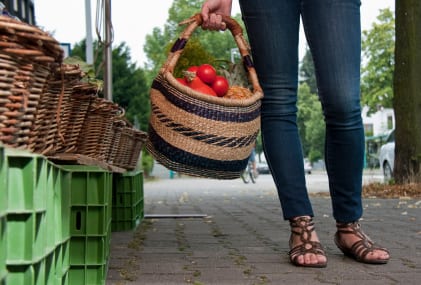Of course, you want only the best for you and your family. You want to make nutritious meals to keep your family healthy. You may even be willing to pay more for the “good stuff” – organic foods, that is. And by more, I mean up to 100% more. But, is buying organic really worth the bigger dent in your family’s budget?
The Organic Movement
Organic food started out as a small niche market and has now grown into multi-billion-dollar business. According to the United States Department of Agriculture, organic means food that is produced by farmers who prioritize the use of renewable resources and the conservation of soil and water to enhance environmental quality. The USDA National Organic Program was introduced to set organic food standards and oversee organic farming practices and procedures.
What Exactly Does “Organic” Mean?
When it comes to “organic” labels on meat products, it usually means that the animal has not been treated with antibiotics or growth hormones, was never given feed containing animal byproducts and was fed organic feed for at least a year. When it comes to organic foods grown directly from the ground, the food must not have been genetically modified, the fertilizers didn’t contain sewage sludge or synthetic ingredients, and fruits and veggies have not been sprayed with chemically-infused pesticides.
Tricky Label Language Revealed
Organic foods are labeled a number of different ways. Here is Consumer Reports guide to tricky label language: “100% organic”: Must contain 100% organic ingredients. “Organic”: At least 95% of ingredients are organically produced. “Made with Organic Ingredients”: At least 70% of ingredients are organic; the other 30% are from a list approved by the USDA. “Free-range” or “free-roaming”: Animals had an “undetermined” amount of daily access to the outdoors. U.S. government standards are weak here.”Natural” or “All Natural”: Does NOT mean organic. No standard definition, except for meat and poultry products, which may not contain any artificial flavoring, colors, chemical preservatives, or synthetic ingredients. Claims aren’t checked. The producer or manufacturer simply decides whether or not to use it.
Is Organic Healthier?
The truth is that scientists have never proved that organic foods are more nutritious, and most agree that if any nutritional difference were found, it would not be significant enough to impact your health. In the 2006 nationwide spinach recall, several brands of organic spinach were found to be infected with E. coli. So, certain environmental hazards are found not only in conventional produce, but also in organic produce. While there have been reports of people claiming that an organic diet cured their cancer, there is no scientific evidence to support this either.
So, Should I Buy Organic?
“On average, you’ll pay 50% extra for organic food, but you can easily end up shelling out 100% more, especially for milk and meat,” states Consumer Reports. The non-profit Environmental Working Group has suggested focusing your organic buying budget on what they call the “dirty dozen”: foods that are most affected by pesticide residue. Here is a list of foods that they recommend buying organic: peaches, apples, pears, nectarines, bell peppers, cherries, lettuce, strawberries, imported grapes, celery, spinach and potatoes. With conventional produce, make sure to wash them and scrub well with a vegetable wash, or just peel them.





